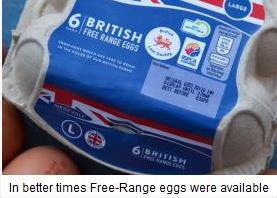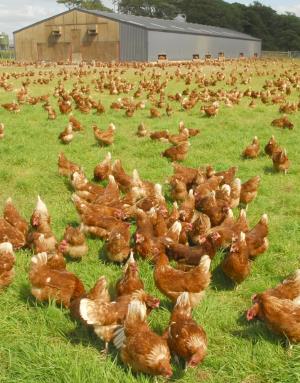Farmers in the U.K. producing free-range and organic eggs have endured an extended period of escalation in the costs of feed and utilities, creating an unprofitable situation. Despite entreaties to increase wholesale prices, major supermarket chains including Tesco, Asda, Sainsbury's and Morrison’s have been reluctant to support specialty egg producers.

Since November 2021, farmers have been obliged by government mandate or fear of HPAI to confine flocks. Accordingly, hens are no longer eligible to produce eggs to be sold under a ‘free-range’ claim, resulting in reduced payment to producers.
Since farmers have exhausted working capital and financial institutions are reluctant to extend additional credit on the basis of reduced capacity to service debt and the risk of HPAI, many farmers will cease operation at the end of their current flock cycles.
Supermarkets are naturally disinclined to further reduce thin margins in a highly competitive and overtraded market in the U.K. Eggs can be imported from the E.U. at prices cheaper than domestic production and this reality is used as leverage against domestic producers.
The situation has implications for the U.S. In common with the U.K and the E.U., domestic welfare advocacy groups forced a conversion from conventional cages to alternative housing systems requiring extensive investment by producers. Unfortunately, consumers, while appearing to demand welfare-friendly production, are not willing to pay the incremental cost associated with free-range, organic and in many locations, barn housing. This has resulted in the current impasse in the U.K. The result will be fewer cage-free, pasture-raised and organic eggs on the market, increasing prices for these categories. Imported eggs derived from flocks housed in enriched colony modules will be offered by U.K. chains with or without country of origin labeling.
 The realization is now emerging that inflation in all foods and especially animal protein will divert discretionary spending from nonessentials to groceries. Consumers will become more price sensitive, especially in the U.K., that is now experiencing the impact of the injudicious Brexit decision.
The realization is now emerging that inflation in all foods and especially animal protein will divert discretionary spending from nonessentials to groceries. Consumers will become more price sensitive, especially in the U.K., that is now experiencing the impact of the injudicious Brexit decision.
The lesson for the U.S. is that enthusiasm for welfare and willingness to pay are separate issues and in times of economic stringency the purse will prevail over sentiment. Members of the Food Marketing Institute and the National Restaurant Association that were coerced in 2020 by HSUS into mandating cage-free production by 2025 are beginning to reconsider their earlier commitments. Producers have spent many millions to house approximately a third of the national flock to alternatives to cage housing. The rate of conversion is however, slowing and the target of 2025 will obviously have to be extended. It is highly likely that by 2030, more than 20 percent of U.S. hens will still be housed under confinement, in all probability using enriched colony modules at a density of one hen per square foot of floor area.